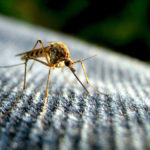Citizens/environment will not be impacted by novel experiment releasing millions of GE mosquitoes
WASHINGTON, D.C. — The Food and Drug Administration announced that it will not move forward with the controversial release of millions of genetically engineered mosquitoes in the community of Key Haven in Monroe County, Florida. The release of the GE mosquitoes would have been the first-ever in the United States, but the FDA failed to conduct adequate testing for potential impacts to people, threatened and endangered species, and the environment. During the November 2016 election, local citizens voted against the release of the insects.
A coalition of public interest groups – including Center for Food Safety, Friends of the Earth, Foundation Earth, the International Center for Technology Assessment, the Florida Keys Environmental Coalition, and Food & Water Watch – yesterday received a response to their 60-day notice of intent to sue the FDA under the Endangered Species Act for failing to take into account impacts to federally listed species in a fast-tracked approval of the release of the GE mosquitoes.
In a letter to CFS attorneys, counsel from the FDA noted, “per the public referendums which took place on November 8, 2016, and the subsequent board meeting of the Florida Keys Mosquito Control District (FKMCD) on November 19, 2016, the proposed field trial is no longer moving forward in Key Haven, FL. Because residents of Key Haven voted against the trial, FKMCD commissioners agreed that the trial will not be conducted there.”
Release of GE mosquitoes elsewhere in Monroe Country will require the manufacturers, Oxitec, to resubmit a new application for a trial release with environmental data for the new site. If the FDA considers alternate locations proposed by Oxitec for a trial release, it will need to conduct the mandatory Environmental Assessment and indicate Findings of No Significant Impact for any new site.
“FDA knew it was reckless to approve the release of a novel species without first assessing the potential impacts. The agency didn’t do its homework so the local community spoke up and they had the law on their side,” said Jaydee Hanson, Senior Policy Analyst at the Center for Food Safety.
“This is a victory that protects local communities from reckless experiments,” said Dana Perls, senior food and technology campaigner with Friends of the Earth U.S. “The FDA should never let people and ecosystems be treated as laboratories. We need long-term and sustainable solutions to prevent mosquito breeding grounds.”
“We are glad the FDA finally recognized that it should not allow a company to release experimental GE mosquitoes into a community without their consent,” said Patty Lovera, assistant director of Food & Water Watch. “The FDA needs an entirely new approach to evaluating the potential risks form GE insects.”
“We expect Oxitec will reapply for a permit to include all of Monroe County. FDA must push Oxitec to answer questions the company has avoided, like why have the mosquitos not been tested for pre-existing disease, especially when Zika transfers to eggs; and what is the likelihood of antibiotic-resistant bacteria promotion. Finally, FDA must require a full Environmental Impact Statement on the long term effects of the GE Mosquito DNA entering the sustainable wild populations,” said Barry Wray, Executive Director, Florida Keys Environmental Coalition.
Background:
On November 9, residents of Key Haven, Florida, the proposed release site of the GE mosquitoes, voted against the release of the insects, which were not adequately assessed for risk before being approved by the FDA.
The lack of independent scientific research on the release of GE mosquitoes constitutes a most troubling factor in the drive to release millions of these insects. While the desire to control viral diseases like zika and dengue is understandable, Oxitec, the company manufacturing the GE mosquitoes, has not demonstrated that its release of the mosquitoes in Brazil, Cayman Islands and Malaysia has reduced disease. Few studies, if any, have been done to understand the unintended evolutionary effects of introducing new genes into a species. GE mosquitoes are intended to be sterile, but not all are.
In addition to potential threats to sensitive ecosystems and a lack of evidence to support the GE mosquitoes’ efficacy at minimizing the spread of disease, there is little information about what ingesting these insects could do to people. So many mosquitoes are released in the Oxitec trials (millions are released multiple times a week) that people complain of being forced to breathe in and eat mosquitoes.
Center for Food Safety’s mission is to empower people, support farmers, and protect the earth from the harmful impacts of industrial agriculture. Through groundbreaking legal, scientific, and grassroots action, we protect and promote your right to safe food and the environment. Please join our more than 750,000 consumer and farmer advocates across the country at www.centerforfoodsafety.org. Twitter: @CFSTrueFood, @CFS_Press
Friends of the Earth fights to create a more healthy and just world. Our current campaigns focus on promoting clean energy and solutions to climate change, ensuring the food we eat and products we use are safe and sustainable, and protecting marine ecosystems and the people who live and work near them.
Food & Water Watch champions healthy food and clean water for all. We stand up to corporations that put profits before people, and advocate for a democracy that improves people’s lives and protects our environment.
The Mission of the Florida Keys Environmental Coalition is to coordinate and support organizations, businesses and individuals, who work to protect the coral reefs and ecosystems of the Florida Keys and to provide a unified voice for our community.within our island environment, do everything we can to protect it.
###
Contacts:
Courtney Sexton; (202) 547-9359, pr@centerforfoodsafety.org
Kate Colwell, (202) 222-0744, kcolwell@foe.org
